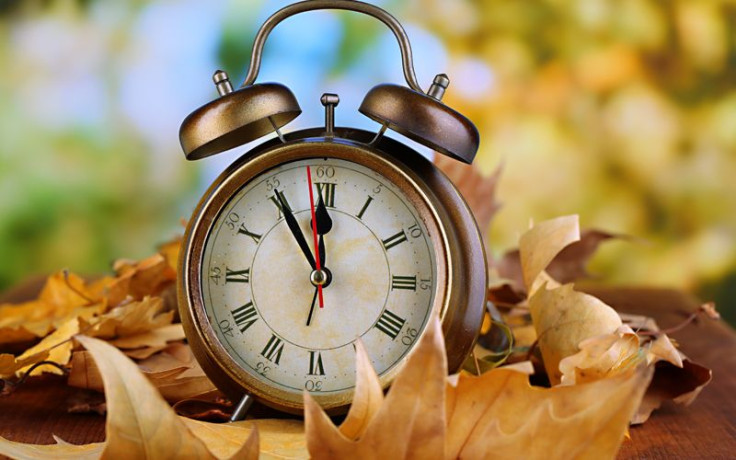
It's time to officially say goodbye to the summer as Daylight Saving Time 2016 ends in the United States of America. Following Halloween, U.S. citizens will have to "fall back" and set their clocks one hour back on Sunday, November 6 at 2AM. However, if you are traveling or living outside of the U.S. and Canada and that country observes daylight savings time, your time to change your clock might be sooner or later.
Why is it different for the U.S.? The Energy Policy Act of 2005 that was passed by U.S. Congress and signed by President George W. Bush, attempted to combat growing energy problems, provide tax incentives and loan guarantees for energy production of various types. The bill also amended the Uniform Time Act on 1966 that changed the start and end dates of daylight savings time starting in 2007. Clocks were to be set ahead on the second Sunday of March, instead of the first Sunday of April and clocks were to be set back one hour on the first Sunday of November instead of the last Sunday of October.
The reasoning behind daylight savings and the time shifts was to take advantage of the daylight in the mornings and the lighter evenings during the summer. In America, summer time saved the equivalent in energy of 10,000 barrels of oil each day during the 1973 oil embargo. At this period of time, DST was extended to ten months in 1974 and eight months in 1975, and it reverted back in 1976 when the energy crisis ended, with daylight savings beginning on the first sunday of April. Most of the U.S. observes DST except for Hawaii and most of Arizona.
Daylight savings time has its detractors with most citing it really has no effect in energy consumption. The California Energy Commission published a report, in which it states that the extension of daylight saving time in March 2007 had little or no effect on energy consumption in California. In another report it was found there was no evidence that electricity would be saved from the earlier start to daylight saving time and that there was a chance that there could be a very small increase in electricity. Some of the positive points that DST brings to households is that it gives people that extra hour of light in the afternoon to maybe do some outside chores, spending time outside and enjoy people's company and maybe help out businesses for people to continue shopping in the evening. What do you think of Daylight Savings Time? Do you think it's beneficial to your daily life?
© 2025 Latin Times. All rights reserved. Do not reproduce without permission.





